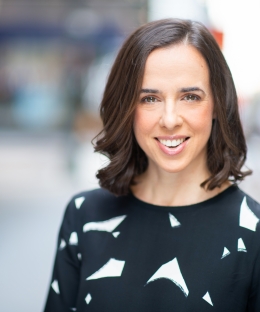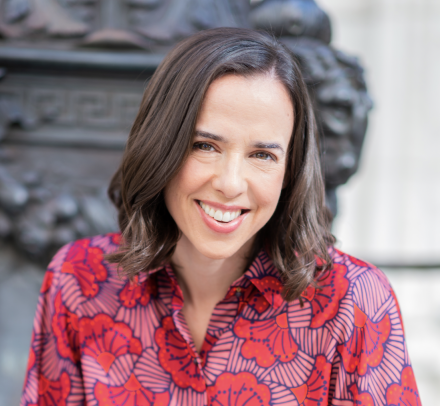
Kathryn Judge
- Harvey J. Goldschmid Professor of Law
J.D., Stanford University, 2004
B.A., Wesleyan University, 1999
Banking
Corporations
Financial Institutions/Regulation

J.D., Stanford University, 2004
B.A., Wesleyan University, 1999
Banking
Corporations
Financial Institutions/Regulation
Kathryn Judge’s research focuses on banking, financial crises, regulatory architecture, and intermediation design beyond finance. Her academic work has received accolades from academic peers and industry.
Judge currently serves as chair of the Research Committee of the European Corporate Governance Institute, in addition to serving on its Working Paper Series Editorial Board. She has served as vice dean for intellectual life at Columbia Law School, as an editor of the Journal of Financial Regulation, as a member of the Financial Stability Task Force co-sponsored by the Brookings Institution and Chicago Booth School of Business, and as a member of the Financial Research Advisory Committee (FRAC) to the Office of Financial Regulation. While serving on FRAC, she co-chaired the working groups on financial innovation and the London Interbank Offered Rate (LIBOR) transition.
Judge’s book, Direct: The Rise of the Middleman Economy and the Power of Going to the Source (HarperBusiness), was on the long list for the Financial Times Business Book of the Year, received the Gold Medal for Business Theory from Axiom Business Book Awards, and was included among the “Top 16 Finance Books of 2022” and “Top 22 Business Books of 2022” by Next Big Idea Club. More information about Direct, Judge’s popular writing, and other press is available on her website, kathrynjudge.com.
Prior to joining Columbia Law School, Judge clerked for Judge Richard Posner of the 7th U.S. Circuit Court of Appeals and Justice Stephen Breyer of the Supreme Court. She also worked as a corporate associate with Latham & Watkins. She is a graduate of Stanford Law School (J.D. with Distinction, 2004), where she earned the Urban A. Sontheimer Honor (second in class), and Wesleyan University (B.A. with High Honors, 1999).

Over the past 30 years, middlemen have built intricate financial and retail empires capable of moving goods across the country and around the world—transforming the economy and our lives. Because of middlemen, we enjoy an unprecedented degree of choice and convenience. But the rise of the middleman economy comes at a steep price. Judge shows how overgrown middlemen became the backbone of modern capitalism and the cause of many of its ailments. Middlemen today shape what people do, how they invest, and what they consume. They use their troves of data to push people to buy more, and more expensive, products. They use their massive profits and expertise to lobby lawmakers, tilting the playing field in their favor. Drawing on a decade of research, Judge shows how to fight back: Go to the source.
The process of direct exchange—and the resulting ecosystem of makers and consumers, investors and entrepreneurs—fosters connection and community and helps promote a more just, resilient, and accountable economic system. Direct exchange reminds us that our actions always and inevitably impact others, as it rekindles an appreciation of our inherent interconnectedness. As Judge reveals, direct exchange is both the cornerstone of the solution and a tool for revealing just how much is at stake in decisions about “through whom” to buy, invest, and give.

In her new book, Direct: The Rise of the Middleman Economy and the Power of Going to the Source, the Columbia Law professor weaves together her expertise in financial regulation and her experiences as a conscientious yet conflicted consumer.